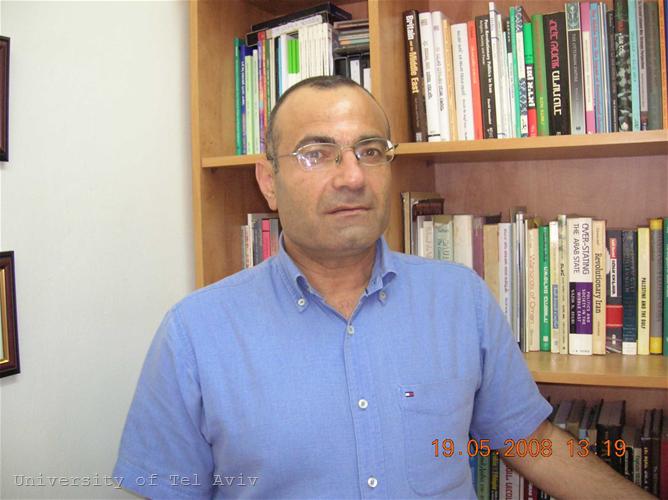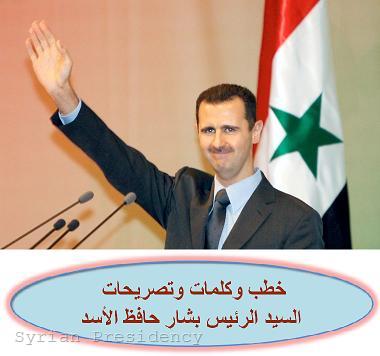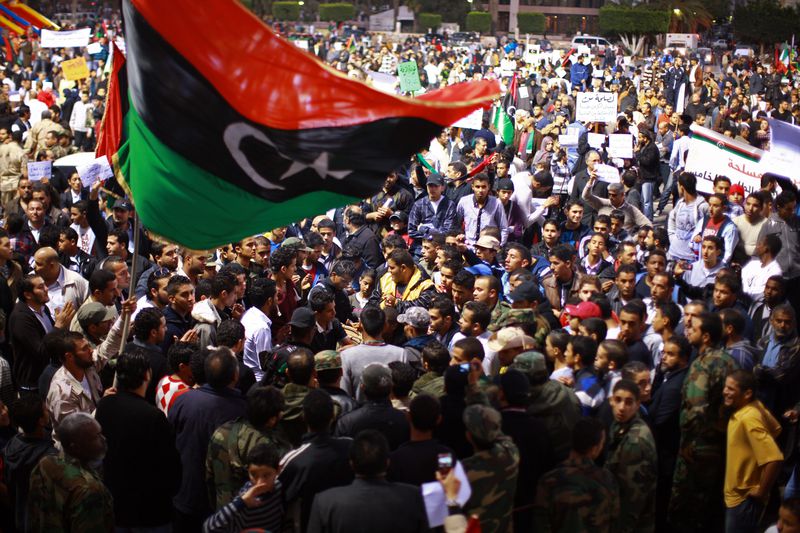When the inevitable has come
Adelina Marini, February 18, 2011
 Some things are inevitable. Because of the clash between the short-term and the long-term. And because of the development that has happened meanwhile. This is precisely the case with the developments in the Middle East and Northern Africa. A region whose future and present has been defined by the short-term political and economic interests. The long-term ones have always been left for someone else. And today the uprisings in the region continue and have even reached Libya. Who could imagine that even there popular unrest could have erupted.
Some things are inevitable. Because of the clash between the short-term and the long-term. And because of the development that has happened meanwhile. This is precisely the case with the developments in the Middle East and Northern Africa. A region whose future and present has been defined by the short-term political and economic interests. The long-term ones have always been left for someone else. And today the uprisings in the region continue and have even reached Libya. Who could imagine that even there popular unrest could have erupted.
Of course the reasons everywhere differ, but it is a fact that the inevitable has come - the change in these conservative societies, where religion still is not entirely separated from the state. And precisely because the inevitable has come, the developed world for now prefers to stand aside and watch, instead of undertaking any actions for fear of making a mistake, because mistakes in such a moment in the Middle East could have scary consequences.
This is why the points of view of those whose voice we hear rarely in the midst of the cacophony are very interesting. Such a point of view, for example, is of the Turkish foreign minister. He is interesting for several reasons. One is that Turkey, for some years now, is not what it used to be. It is a serious factor in the region, with stable political and administrative foundations, clear positions and thriving economy. It is no accident that during the unrest in Egypt Turkey was being pointed as a model that the North-African country could follow.
The future of the Middle East cannot depend on Israel's security
This was Ahmet Davutoglu's main message conveyed in an interview for the Al Jazeera TV. He welcomed the developments in Egypt and defined them as "a positive domino effect" in contradiction of his country's previous position before Hosni Mubarak stepped down. And his explanation is that the problem of the region in the last 20 years, after the beginning of the Middle East peace process, is that so far nothing has been achieved and the only one to be blamed for is Israel. However, quite curious is the way in which Mr Davutoglu again blamed Israel:
"And who should be blamed for that - young people in the street demonstrating for peace and stability and freedom in Cairo, or those who are in Israel who many times blocked the way for peace, recently they insisted on having settlements which stopped all the processes in the region? So, therefore, the Egyptian or any other, or Tunisian, or other people should not be punished because of the wrong decisions of Israel".
The Turkish top diplomat said this responding to the question what were Turkey's concerns from the events in the region. He did not express any specific fears, as regarding the Camp David Agreement he even stated that the protesters repeated several times that they would respect all international commitments of their country. And he again attacked Israel. Regarding whether Turkey could be used as a model of development for Egypt (a secular country, controlled by the army, although with a fading influence of the military establishment), Ahmet Davutoglu said that the contemporary Turkish democracy was a success story, but that there was no perfect democracy.
By the way of the lack of perfect democracy spoke too the former American secretary of state in the second government of President George W. Bush, Condoleezza Rice. In an article for the Washington Post on February 16th she writes that everywhere democracy has its weak and strong sides, but that the biggest challenge in the region of the Middle East would be the principles of radical political Islam. However, she underlines, pointing at Turkey for example - "This struggle is playing out across the region - in Iraq, Lebanon and especially Turkey, where  decades of secularism have given way to the accommodation of religious people in the public square. In Egypt, Christians and followers of other religions will also have to find a place and a voice".
decades of secularism have given way to the accommodation of religious people in the public square. In Egypt, Christians and followers of other religions will also have to find a place and a voice".
Actually, Condoleezza Rice's text is very indicative for the significance of the events today, especially given that it was during the 8-year rule of George W. Bush that America had become a dirty word in the region. And it is no accident at all that the current president, Barack Obama, has decided to be cautious and careful in his reactions on the developments in the Middle East and Northern Africa. Moreover, he said it in the plain text that at that stage it would be damaging for America to be involved in the internal debates.
Ms Rice is also very sincere by admitting that the American interests in the region relied to much on the firm hand of the autocrats in the region. She outlined the Muslim Brotherhood as a challenge: "The Muslim Brotherhood represents the most organized political force in Egypt. Mubarak always said that the choice was between him and the Brotherhood, and he pursued policies that fulfilled that prophecy. While many decent, more secular political leaders were harassed and jailed by the regime, the Brotherhood organized in the mosques and provided social services the regime could not. It will take time to level the playing field". While Davutoglu defined the Muslim Brotherhood as a part of the Egyptian people and stated that Turkey considered the Egyptian people as a whole.
Condoleezza Rice is very open on another principle that differs to some extent from the Turkish vision. "We cannot determine the foreign policy preferences of Egypt's next government. But we can influence them through our ties to the military, links to civil society, and a promise of economic assistance and free trade to help improve the lot of the Egyptian people".
Turkey, on the contrary, thinks that it is not its business to interfere neither in the domestic, nor in the foreign policies of Egypt, at least because Egyptian institutions have deep historical traditions as being solid, with well established culture, politics and society. "Nobody should worry about democracy in Egypt. The decisions in domestic and foreign policy should be in the hands of Egyptian people, not in the hands of other countries". And, although Davutoglu was obviously having in mind Israel, the message was clear.
A Berlin Wall or not?
When analysing the messages of the two influential politicians (Rice and Davutoglu) again popped up the question - is it possible the situation in the region to be compared to the 90s in Eastern Europe? According to Davutoglu "we see this as a historic opportunity and before this opportunity was missed in the 1990s when Eastern European countries were transformed towards democracy, this time we thought that this opportunity should not be missed". It was not clear from the Turkish foreign minister's statement what opportunity namely had been missed in Eastern Europe, but further on he added that the peaceful methods of the protesters were clear and that was why solidarity had to be demonstrated with them.
"This is not 1979 [the Islamic revolution in Iran], but it is not 1989 either. The fall of communism unleashed patriots who had long regarded the United States as a "beacon of freedom." Our history with the peoples of the Middle East is very different. Still, the United States should support the forces of democracy, not because they will be friendlier to us but because they will be friendlier to their own people", insists Condoleezza Rice.
Well, maybe, Turkey's and the US's positions are not that different. The question, however, is what remained untold, as well as who what lessons has learnt from the events in Eastern Europe in the 90s. But as much as there are good grounds for parallels with the former communist countries, the Middle East region is quite different in historical, religious, cultural, political and economic perspective.
 | © University of Tel Aviv
| © University of Tel Aviv | © Syrian Presidency
| © Syrian Presidency | © UN
| © UN